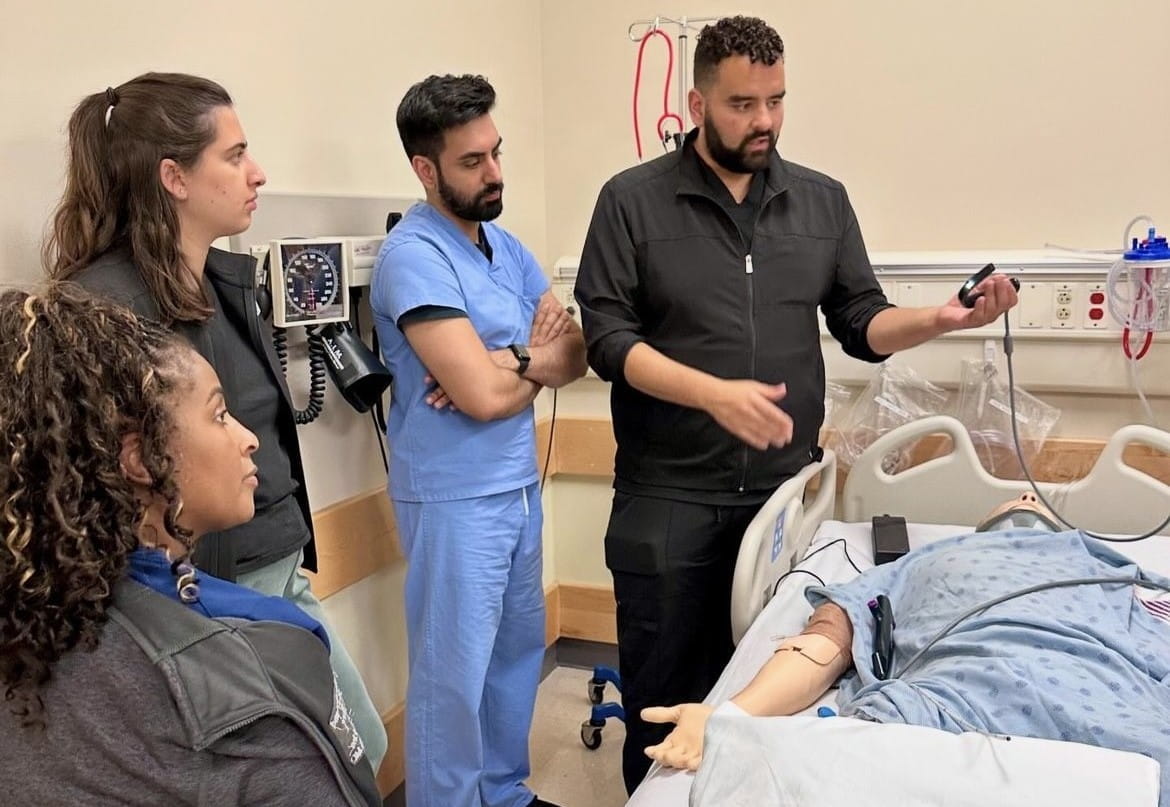The clinical months in the Pulmonary and Critical Care Fellowship program at IU School of Medicine are comprised of a minimum of nine pulmonary and nine critical care rotations. The first year of training consists of 12 months of clinical rotations, and the remainder of clinical months (depending on one’s career goals) are divided among the remaining two years.
| First Year | Second Year | Third Year |
| P/CC med school | IU ICU | IU ICU |
| Methodist Core | Methodist Senior Fellow | Methodist Senior Fellow |
| Ambulatory Pulmonary | Transplant Pulmonary | Neurosurgical ICU |
| VA consult/sleep | Eskenazi Consult | Various clinical rotation |
| IU consult/sleep | Research | Research |
| IU consult/sleep | Research | Research |
| VA ICU | Research/elective | Research/elective |
| VA ICU | Research/elective | Research/elective |
| Eskenazi ICU | Research/elective |
Research/elective |
| Eskenazi ICU |
Research/elective |
Research/elective |
| Eskenazi ICU |
Research/elective |
Research/elective |
| Eskenazi consult |
Research/elective |
Research/elective |
Below are some of the elective options available. Fellows often customize their electives based on career goals and interest.
- Ultrasound
- OB ICU
- Methodist Nights
- Neuro Critical care
- CV-ICU
- Transplant
- ECMO
- CMCC Team 2
- SICU
- Research
- LTACH/Long term vent management
- Ambulatory/Outpatient Clinics
- Ethics
- Pathology
- Palliative Care
- Thoracic Surgery
- Infectious Diseases
-
Bronch/IP
-
Inpatient Pulm HTN consults
-
Outpatient RHC
-
Fellows can also set up away electives - E.g. away IP elective
-
Nephrology - exposure to CRRT/dialysis
-
Thoracic surgery
-
CMCC at Methodist Hospital — You will see a lot of severe pulmonary hypertension, decompensated ILD, and heart failure with mechanical assist devices. You will gain experience putting in swans, titrating PHTN meds, and experience with mechanical assist devices such as balloon pumps and impellas. Additionally, there is exposure to a lot of advanced cardiac ultrasounds.
-
CV-ICU at Methodist Hospital — You will gain experience in post-operative management of CV procedures and peripheral vascular procedures. Additionally, you will get experience with swans, balloon pumps, impellas, LVADs, RVADs.
-
NCC at Methodist Hospital — You will see a lot of very large strokes and brain bleeds, status epilepticus, big brain tumors, and herniating brains. You will gain experience with EVD's.
-
ECMO/Transplant — You will gain experience in managing post lung and cardiac transplant patients. Both VV and VA ECMO experience. You can also help out with organ procurement and fly in the helicopter to pick up organs. You may also get to do the transbronchial biopsies for the lung transplant patients.
-
University Hospital ICU — You will gain experience with decompensated cirrhosis and liver transplantation. You will also get to work with both solid and hematological malignancy, and post bone marrow transplant patients.
-
Bronchoscopy — You will get a lot of IP experience here! As fellows you get to do bronchoscopy, BAL, transbronchial biopsies, endobronchial biopsies, EBUS, robotic bronchoscopy, airway stents, BLVR with zephyr valve placement, spiration valves, foreign body removal, tumor debulking with APC/cryo. Some of the fellows have even done PleurX catheter insertion.
-
IU Health West — You will gain experience in starting to try and read CPET's and CPET exposure with Zach Fulkerson.
Fellows will get a breadth and depth of training in all aspects of pulmonary and critical care medicine. Trainees can expect to be certified in the following procedures by the end of their fellowship:
- Flexible bronchoscopy
- Transbronchial biopsies
- Endobronchial biopsies (forceps and needle)
- Central venous cannulation
- Arterial cannulation
- Thoracentesis
- Paracentesis
- Endotracheal intubation
- Tube thoracostomy (chest tube placement and management)
- Critical care ultrasound
Additionally, there is opportunity to become certified in more advanced pulmonary and critical care procedures for those who wish to do so:
- Endobronchial ultrasound
- Pleur-X catheter placement
- Thoracoscopy
